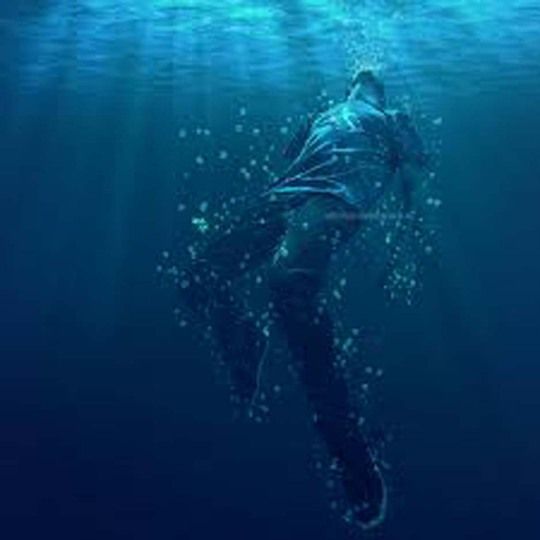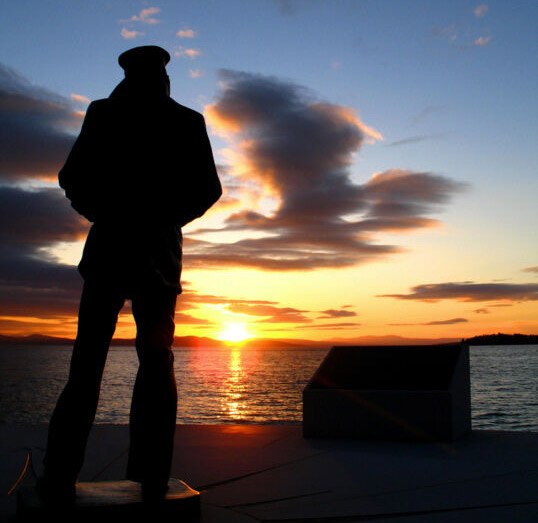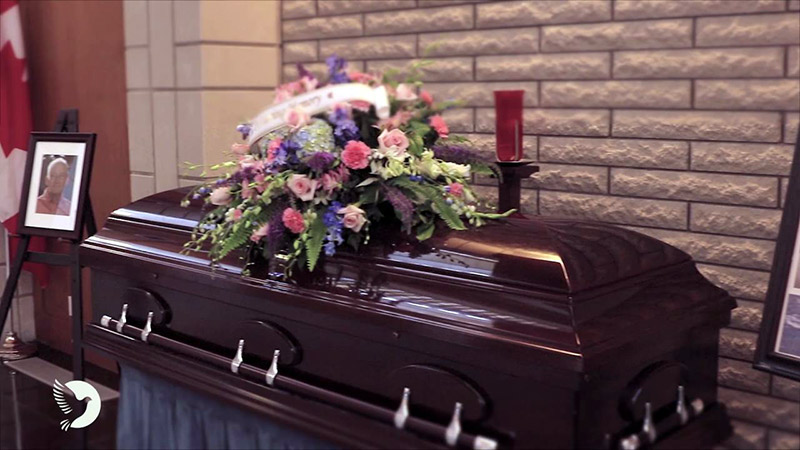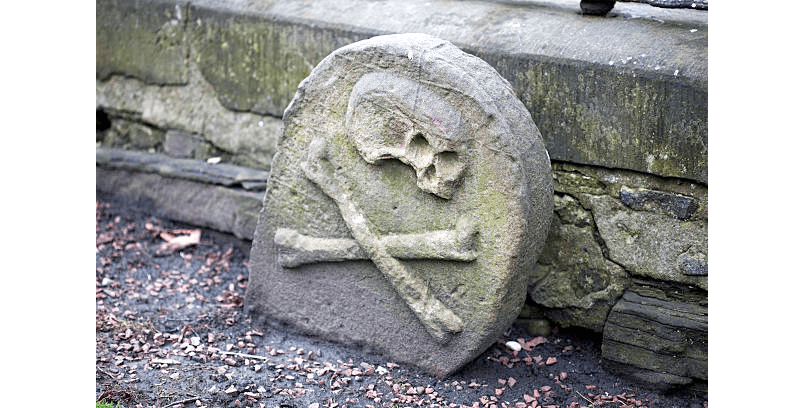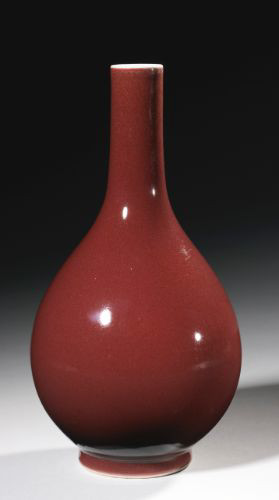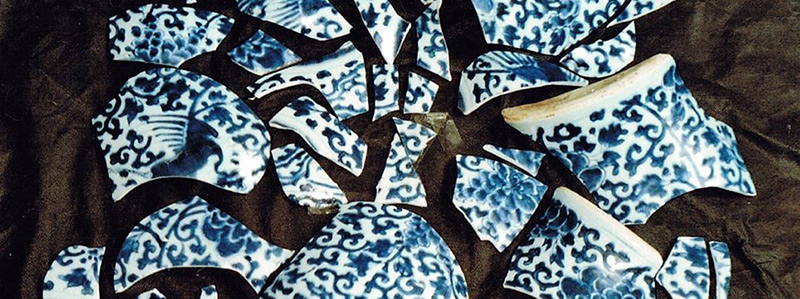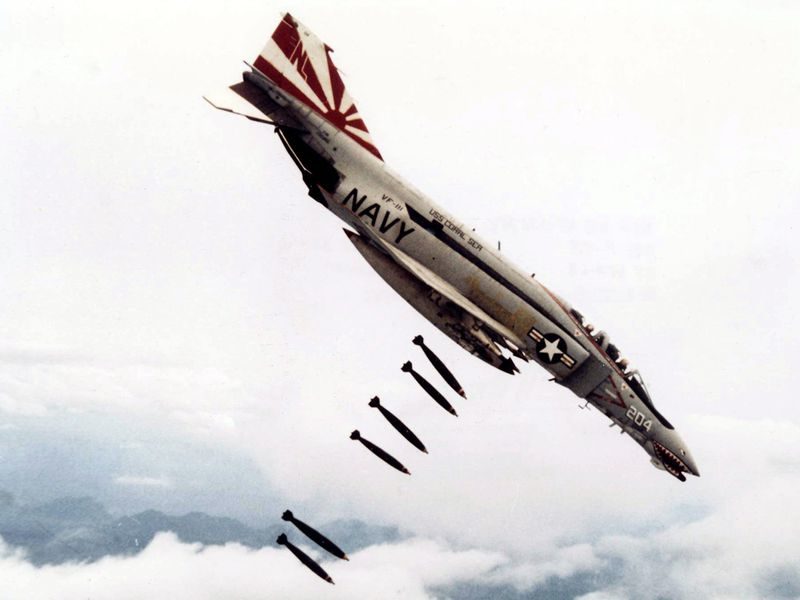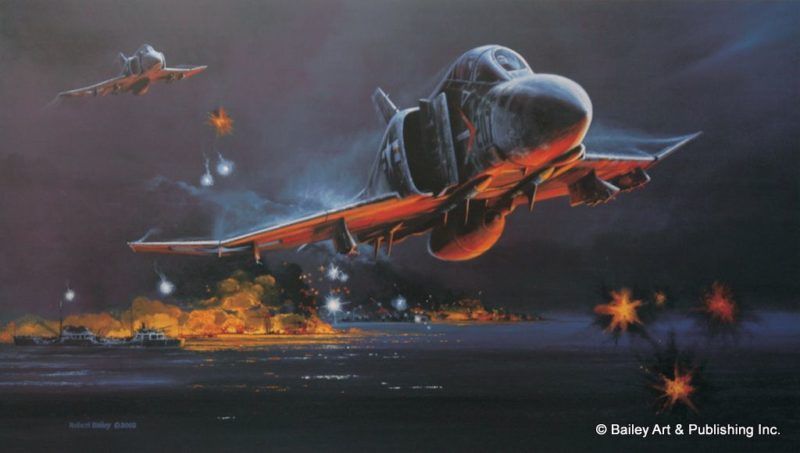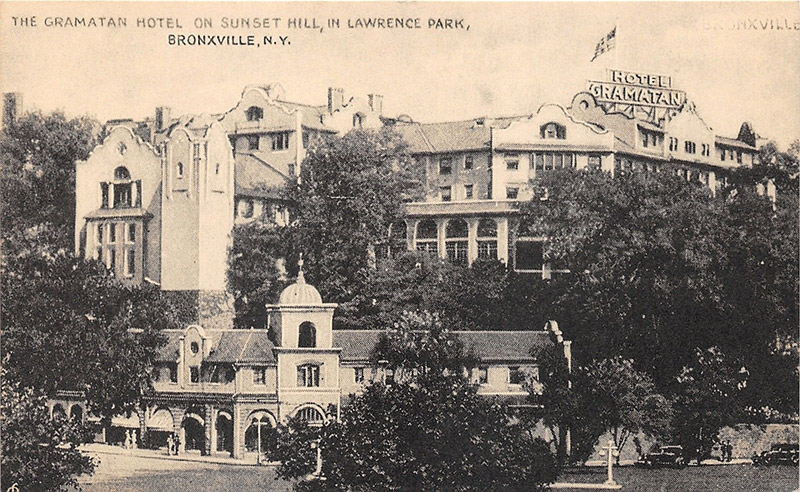Good Men Who Eat Their Cubic Mile of Cold
Good men, who eat their cubic mile of cold,
their biscuits of loneliness without complaint,
bad boys, who never finished school
but welcome the war zone for the extra pay.
For the various ocean on which they work
they show no feeling only the respect
lumberjacks would show a leaning tree.
Waterspouts, whales pass distantly.
The “youngsters," down in the hold with dreams,
don't hear the pumps reciprocate with steam.
The old men, repair their only art,
no longer follow arrivals and departures of the heart.
Each makes a pact with steel,
comforted in the mesh of part and part.
They never age: machinery maintained,
they seem by that to be sustained.
Before agreeing to a Sailor's Home,
they would put to sea once more
and, far out, lay the fires
and give the ship into the hands of drift.
John Barr
Good Men Who Eat Their Cubic Mile of Cold Read More »
The Brotherhood Of Morticians
The story is told of the undertaker
who runs out of formaldehyde
and uses antifreeze instead.
Asked why his costumers look blue,
he says he's made them good
for starting down to ten below.
Let me take that as my text tonight.
We function at the shelving edge between
the dead and living: upstairs receive
the bereft with sympathetic mien,
assist in the ceremonies that release
their grief, maintain decorum
from visitation to the Rest In Peace.
In small ways on this side
of the great divide we add valorem.
Down in the basement we prepare
the departed to deworld: fallen parts
put back, drain cavities, ensure
with needle and formaldehyde
that burial's not premature.
(Only we need to know what's underneath
the suit; we're paid to work alone.)
Death we cannot forestall
for we come after, but the appearance of death,
we do. Not Jekyll, not Hyde, we undertake
to give the grievers back their own.
Not black, our arts are to restore:
toiletries and touch-ups, nails and hair.
Our charges seem to sleep. The wake,
correctly done, is a farewell
"to one who goes before."
Muted organ, muted lights, mute friends:
our insincere sincerity
buffers the bewildered family
from grim specifics of the tragedy.
Pinched in earthquakes, browned in fires,
consumed by cancer's radish,
a coronary's urgent turbulence,
collapsed at tables, choked on bones
(was there ever such savage disregard
as when Death squats, Neanderthal,
on the chest of a dinner guest?),
buckled in showers, felled at urinals.
Good fellows, our associates, Rotarians
who take the jokes as part of the job, who oversee
the motorcade, one stop upstream from Charon's,
the progress to the pit,
the vicarinvokingchrist's last words,
the family not hearing it,
the unaffected cemetery birds.
Or, if cremation's specified, they certify the burn,
entrust to a family friend the urn
to carry south to green reaching waters of the Gulf.
But the lesser in our trade
miss the magnitude of what we do.
We are after all not dressing meat.
Our task: no less than to preside
at a meeting of world and world, a mystery
wherein the person they knew
and some strange double coincide
("It's him, but it's not.").
In one, two worlds epiphany.
They're one of us still, the newly dead,
but lack their spark (that gone
to the parson's charge or who knows where).
The simmer in the brainpan at the body's end
is out. Stiffness invades the supple limbs.
The fresh dead season and dry.
And this is the first life after death.
Roots visit, tendrils touch,
slow solvents work new properties.
Animal, vegetable, mineral,
the dead in grave's grip reach
a dreamless crystalline estate.
A man, become his minerals, salts
away the last of his identity,
seeps to the water table and secretes
trace elements. And that is the next life after death
a foreign stain on the littoral
at the beck of continental drift.
I tell you, World Without End is a statement of geology,
No longer lightning-life dotting the earth, marking divides,
we are returned to the planet's peristaltic beckonings,
welcomed by eons below, included in the crush and flow
of plate on plate, the tectonic thrust,
unimaginably strong and slow,
as continent mounts continent,
the grind, compression, conversion to what is next and new.
John Barr / from The Hundred Fathom Curve
The Brotherhood Of Morticians Read More »
Death of a Species
The earth doesn't need to be saved.... 99 percent of
|
The long republic shells the long republic
of itself. Large-minded calibers
open in front of us. Of their swell and pass
Hemingway observes, "The one that fucks you
you won't hear. " Orwell muses,
“... not so much afraid of being hit
but that you don't know where you will be hit."
Staggered by airstrikes, our remaindered Republic
falls to an endless enfilade. Bulldozers
bury our dead while the single-minded calibers
of snipers pick and choose. An officer instructs you
on the animal filth you are: "Salute. Say Yes."
The brown sausage of your tongue, the boils and pus,
the Copacabana in your gut that gives you the shits
are gifts of the tiny goddess that infects you.
Despite the frantic scrubbings with carbolic
the life boils out of you. The plague ship sails–cadavers
for cargo, us for crew–on the ultimate in cruises.
We never expected rains, let alone the sluices
of Heaven. The sea's rise the land's loss,
the last of the surf-encircled summits disappears.
The known world shrinks to the waters where we sit,
fathoms above the topsoils of our Republic–
or, given the lack of landfalls, maybe Timbuktu.
Watching the rivers freeze, the glaciers grow, what strikes you
is, there is a Hell and this is how it freezes.
Knapped point hafted, lashed to a throwing stick,
we follow the herd that opens the snow in search of grass.
In the Great Depopulation birth rates plummet,
feeding chains collapse. Our species takes a number.
The moon's not right–the side-lit lavender sphere careers.
What are the odds a button of neutron star strikes through
our mere-most crust, taking a piece of planet with it?
The earth unbelts from orbit. Losing light and gases
it seeks a farther place in time and space.
Etiolate ... hypoxic... and now we are relict.
And now you can declare it. Calibers
or spears, king or republic, what finally fucks you–
take it from the Muses–is: This too shall pass.
John Barr/from Dante in China
Death of a Species Read More »

